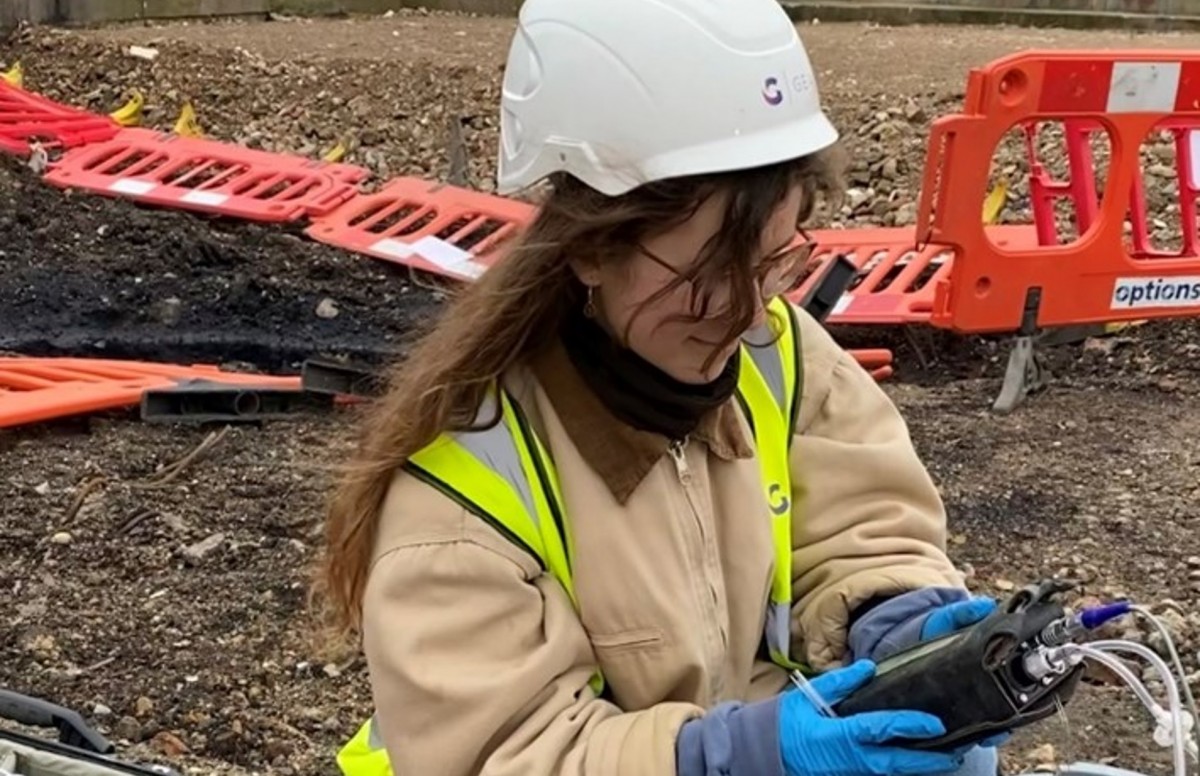The Buzz on Geotheta
Wiki Article
The Single Strategy To Use For Geotheta
Table of ContentsThe Definitive Guide to GeothetaThe Basic Principles Of Geotheta Geotheta Can Be Fun For EveryoneThe Best Strategy To Use For GeothetaThe Ultimate Guide To Geotheta

They conduct site examinations, accumulate samples, do research laboratory tests, and assess data to assess the suitability of the ground for building tasks - Consulting Engineer. Based on their findings, geotechnical engineers supply referrals for foundation design, slope security, retaining frameworks, and mitigation of geotechnical risks. They collaborate with other experts, such as architects, structural engineers, and building groups, to make sure that geotechnical factors to consider are incorporated right into the general job style and implementation
By evaluating the behavior and homes of soil and rock, they can determine possible geotechnical dangers such as landslides, dirt negotiation, or incline instability. Their experience helps prevent failures or accidents that could jeopardize lives and home. Here are some in-depth obligations and duties of a geotechnical engineer: Website Examination: Geotechnical designers conduct website investigations to gather data on subsurface problems.
They interpret the information to recognize the buildings and habits of the dirt and rock, including their strength, leaks in the structure, compaction qualities, and groundwater conditions. Geotechnical Analysis and Style: Geotechnical designers examine the information accumulated throughout website examinations to examine the security and viability of the website for building and construction tasks. They do geotechnical computations and modeling to evaluate variables such as bearing capacity, negotiation, incline security, lateral earth pressures, and groundwater flow.
The Greatest Guide To Geotheta
Structure Style: Geotechnical engineers play a crucial duty in creating foundations that can securely support the desired structure. They assess the dirt conditions and load demands to determine the ideal structure kind, such as shallow foundations (e.g., footings), deep structures (e.g (https://geotheta.start.page)., piles), or specialized strategies like dirt enhancement. They consider aspects such as settlement restrictions, birthing capacity, and soil-structure communication to establish optimal structure stylesThey evaluate building and construction strategies, monitor website tasks, and perform field inspections to validate that the style recommendations are adhered to. If unanticipated geotechnical problems arise, they analyze the situation and provide referrals for remediation or changes to the style. Threat Evaluation and Mitigation: Geotechnical designers evaluate geotechnical hazards and dangers connected with the project site, such as landslides, liquefaction, or dirt erosion.

Collaboration and Communication: Geotechnical designers function very closely with various other specialists associated with a task, such as architects, structural engineers, and construction groups. Efficient communication and cooperation are vital to incorporate geotechnical factors to consider right into the general task design and construction process. Geotechnical engineers provide technical experience, response queries, and make sure that geotechnical needs are fulfilled.
Geotheta Things To Know Before You Buy
Right here are some types of geotechnical designers: Foundation Designer: Foundation engineers specialize in making and assessing structures for structures. They examine the dirt problems, tons needs, and website features to establish one of the most suitable structure type and style, such as superficial structures, deep structures, or specialized techniques like stack structures.They assess the variables influencing incline security, such as soil properties, groundwater conditions, and slope geometry, and create techniques to stop incline failures and alleviate threats. Quake Engineer: Earthquake engineers concentrate on assessing and designing structures to hold up against seismic pressures. They evaluate the seismic risk of a website, evaluate dirt liquefaction potential, and create seismic layout criteria to make sure the security and resilience of structures during quakes.
They execute area screening, collect examples, and examine the accumulated data to characterize the dirt residential properties, geologic formations, and groundwater conditions at a website. Geotechnical Instrumentation Designer: Geotechnical instrumentation engineers concentrate on tracking and determining the behavior of dirt, rock, and frameworks. They install and maintain instrumentation systems that check elements such as soil negotiation, groundwater levels, incline activities, and structural displacements to evaluate performance and supply very early cautions of potential concerns.
About Geotheta
They conduct examinations such as triaxial tests, consolidation tests, straight shear tests, and permeability examinations to gather data for geotechnical analysis and design. Geosynthetics Designer: Geosynthetics engineers concentrate on the layout and application of geosynthetic products, such as geotextiles, geogrids, and geomembranes. They use these materials to improve soil security, enhance inclines, offer drainage remedies, and control disintegration.They tend to be investigatory people, which suggests they're intellectual, reflective, and curious. They are curious, systematic, rational, analytical, and logical. Some of them are also social, meaning they're kind, generous, cooperative, individual, caring, handy, compassionate, sensible, and pleasant - Consulting Engineer.
In the workplace environment, geotechnical designers use specialized software program tools to carry out computations, produce designs, and examine information. They prepare reports, testimonial task specs, communicate with clients and team participants, and coordinate task tasks. The office setup offers a conducive environment for study, evaluation, and cooperation with various a knockout post other specialists included in the task.
The Buzz on Geotheta
They often go to job sites to conduct website examinations, analyze geotechnical problems, and collect data for analysis. These brows through include taking a trip to various places, often in remote or challenging surfaces. Geotechnical engineers might execute soil tasting, conduct examinations, and monitor building and construction activities to ensure that the geotechnical facets of the task are being executed appropriately.Geotechnical designers also operate in specialized geotechnical laboratories. In these facilities, they conduct experiments, do examinations on dirt and rock samples, and examine the design properties of the products. Geotechnical research laboratory designers work thoroughly in these settings, managing screening tools, operating instruments, and tape-recording information. They team up with other laboratory personnel to guarantee exact and reliable testing outcomes.
Report this wiki page